Until 2018, Huawei phones were not that well-known outside of their native China. But after the storming rise of the company thanks to its ...
Until 2018, Huawei phones were not that well-known outside of their native China. But after the storming rise of the company thanks to its excellent P20 Pro with a premium design and amazingly good triple cameras, suddenly Huawei was a smartphone maker to contend with on a global scale.
But a recent US trade ban means that Huawei cannot work with Google, so all its new phones - including the premium P40 Pro and Mate Xs - can’t ship with Google apps and services.
That holds them back, but they still have superb hardware, so are worth considering if you can get by without Google.
Best phones by brand
As such they still make our list, but you’ll also find a number of mostly older Huawei handsets that do still sport Google apps and the Play Store, none of which are more notable than the Huawei P30 Pro.
Despite this phone being over a year old it’s still an incredible handset with an amazing zoom camera, great display and class-leading battery life. You can even get most of the features for less in the P30, too. 2018’s Mate 20 Pro is still a very good option too, and Huawei’s mid-range phones like the P Smart (2019) offer slick design in an affordable package.
- Best phone | Best Android phone | Best iPhone | Best budget phone
- These are the best camera phones, Huawei included
- Check out the best cell phone plans for your Huawei device
Best Huawei phone 2020 at a glance:
- Huawei P30 Pro
- Huawei Mate 20 Pro
- Huawei P30
- Huawei P40 Pro
- Huawei P40
- Huawei Mate 30 Pro
- Huawei P40 Pro Plus
- Huawei Mate 20
- Huawei P20 Pro
- Huawei P30 Lite
- Huawei Mate Xs
- Get the best prices and bargains with our guide to Huawei phone deals
Best Huawei phones
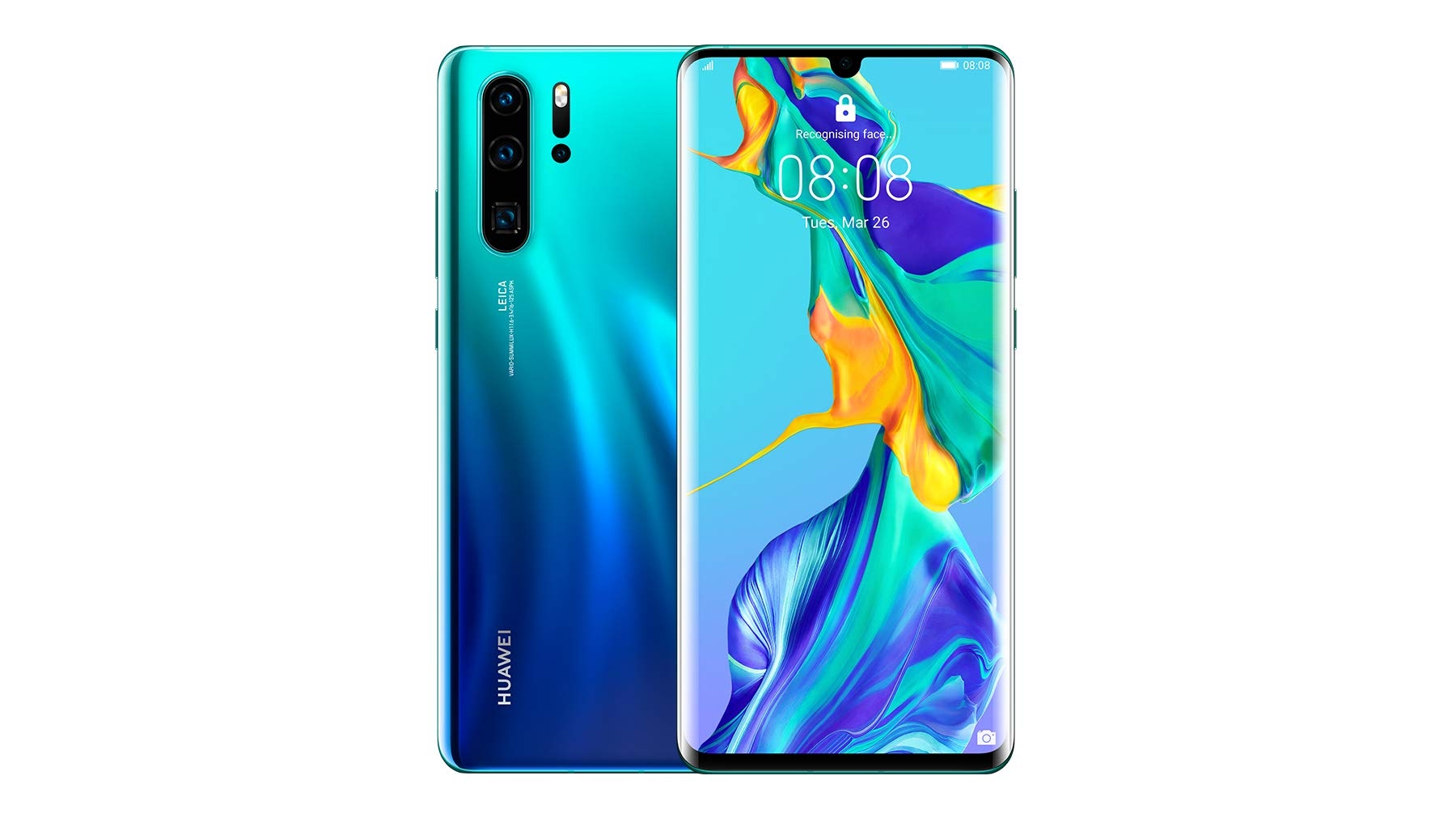
1. Huawei P30 Pro
The P30 Pro is the best Huawei phone you can buy right now
Release date: March 2019 | Weight: 192g | Dimensions: 158 x 73.4 x 8.4mm | OS: Android 9 | Screen size: 6.47-inch | CPU: Kirin 980 | RAM: 8GB | Storage: 128/256/512GB | Battery: 4,200mAh | Rear camera: 40MP + 20MP + 8MP + ToF | Front camera: 32MP
The Huawei P30 Pro is the best Huawei phone you can buy right now. It's also one of the best phone we've used when it comes to photography, with the cameras being the P30 Pro's real party piece, providing staggeringly good 5x and 10x zoom, and a digital 50x zoom with gets you insanely close to objects far off in the distance. Its low-light capabilities are also top-notch.
The large 6.47-inch screen on the P30 Pro may 'only' have a Full HD+ resolution, but it's bright, clear and colorful providing an excellent canvas for your apps and games.
There's no worry when it comes to the P30 Pro potentially running out of juice, the battery life here is excellent. We regularly got to the end of the day with 30% or more left in the tank.
The P30 Pro not only sets a new standard for Huawei, it sets a new standard for the entire mobile industry. Its cameras are quite simply astonishing, the design is eye-catching and the power plentiful. It’s a true flagship smartphone.
Read more: Huawei P30 Pro review
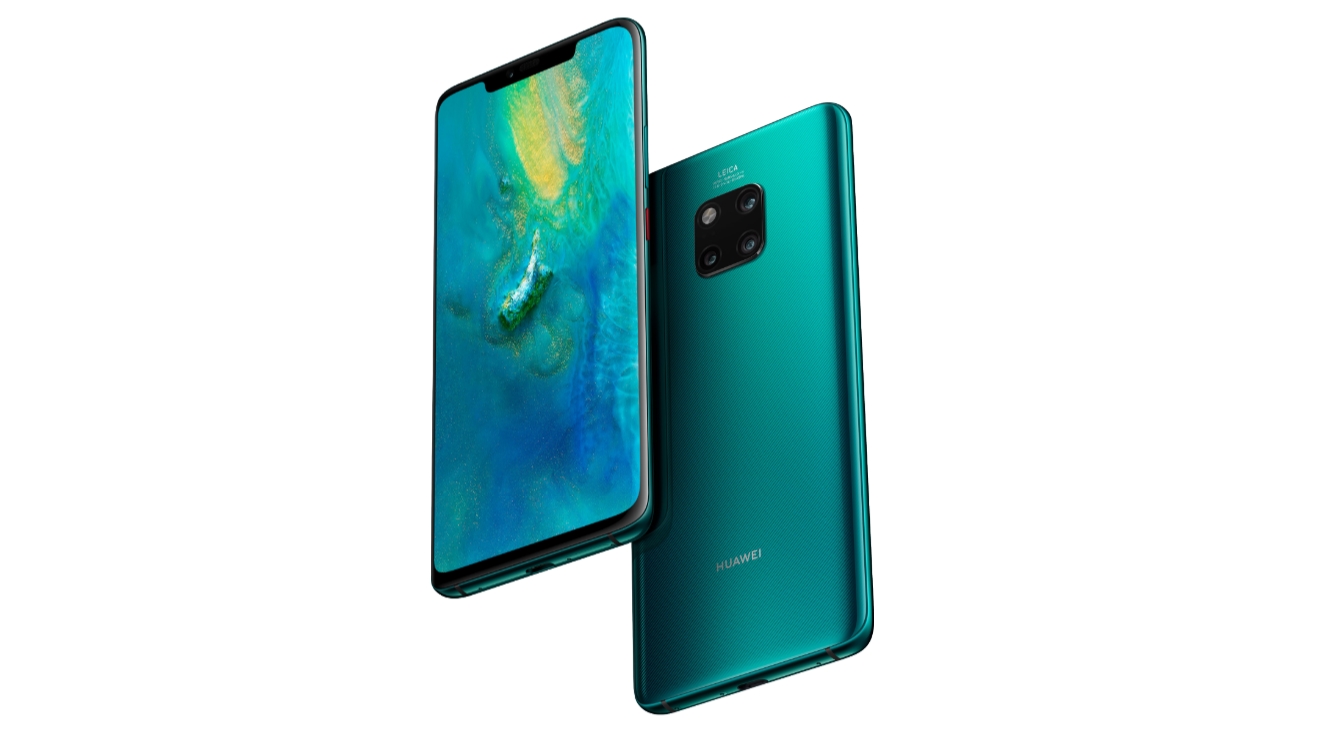
2. Huawei Mate 20 Pro
An outstanding all-round handset
Release date: November 2018 | Weight: 189g | Dimensions: 157.8 x 72.3 x 8.6mm | OS: Android 9 | Screen size: 6.39-inch | Resolution: 1440 x 3120 | CPU: Kirin 980 | RAM: 8GB | Storage: 256GB | Battery: 4200mAh | Rear camera: 40MP + 20MP + 8MP | Front camera: 24MP
The Huawei Mate 20 Pro is a brilliant all-round phone, offering up a heady mix of design, power and performance with a few party pieces thrown in too.
It builds on the excellent P20 and P20 Pro offering up even more screen, enhanced triple rear cameras and an in-display fingerprint scanner.
The Mate 20 Pro packs a huge 6.39-inch display giving you a large amount of space for gaming and movies, and its QHD resolution and HDR10 support ensures everything looks great. There is a wide notch at the top of the display though.
It also boasts three cameras on the rear, nabbing the excellent 40MP wide-angle and 8MP telephoto lenses from the P20 Pro - but the third sensor is new. It's an ultra-wide 16MP snapper allowing you to cram even more of your surroundings into each shot.
The Mate 20 Pro is a full-featured phone for a full-featured price - it even has a few tricks you won’t see elsewhere, and more powerful specs than most of its competitors.
Read more: Huawei Mate 20 Pro review
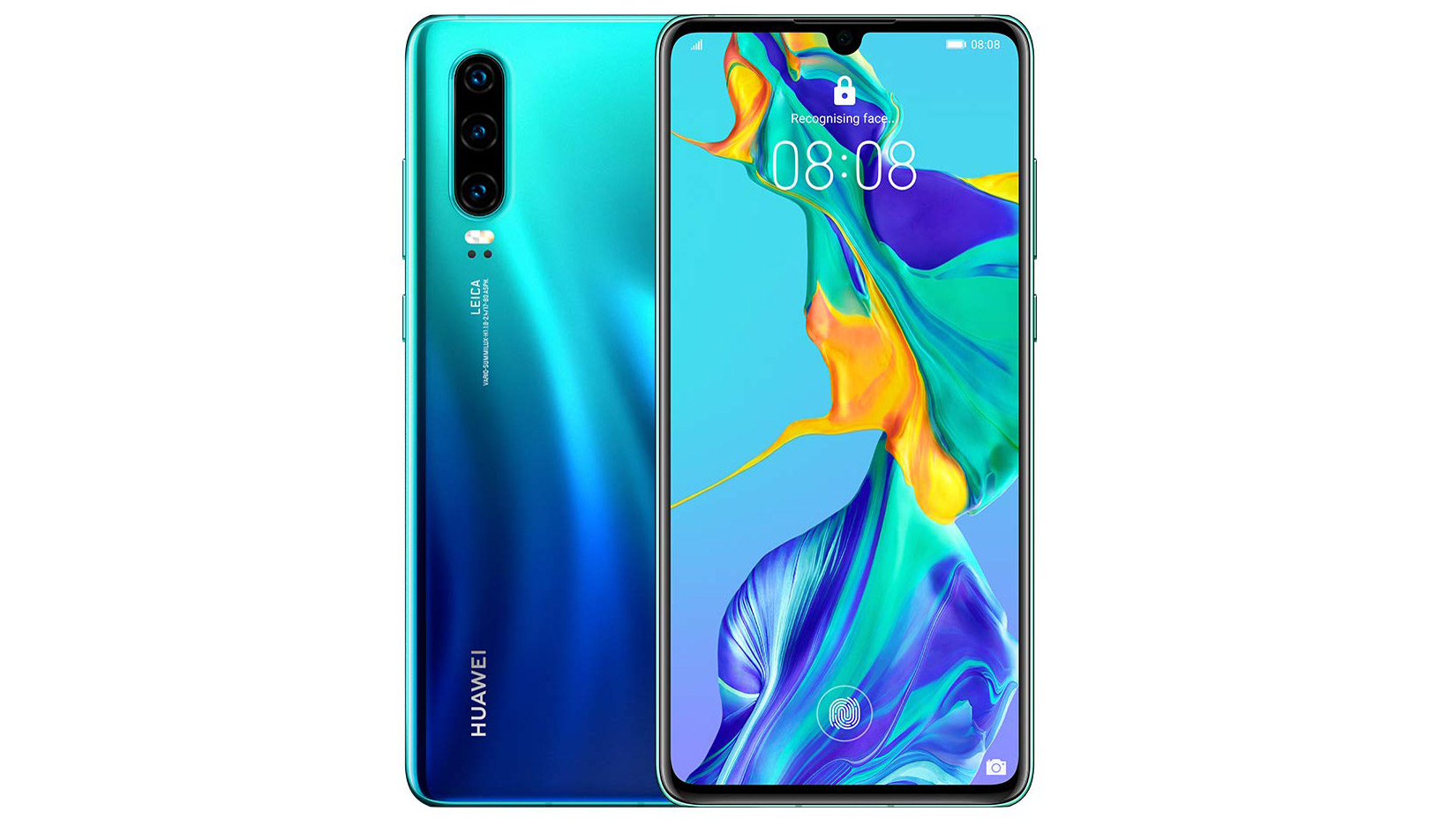
3. Huawei P30
Another top Huawei phone
Release date: March 2019 | Weight: 165g | Dimensions: 149.1 x 71.4 x 7.6mm | OS: Android 9 | Screen size: 6.1-inch | Resolution: 1080 x 2340 | CPU: Kirin 980 | RAM: 8GB | Storage: 64/128/512GB | Battery: 3,650mAh | Rear camera: 40MP + 16MP + 8MP | Front camera: 32MP
The Huawei P30 has a smaller screen than the P30 Pro, and makes do with just the three rear cameras and a maximum zoom of 30x, but it's still one of the best Huawei phones around.
With a 6.1-inch display the P30 is a little easier to manage in the hand than its larger sibling, and with a Full HD+ and plenty of colour it's a top smartphone screen. You can expect to get excellent battery life from the Huawei P30, with the phone often lasting a day and a half on a single charge without issue.
While the three cameras on the rear aren't quite as good as the four on the P30 Pro, they still offer up an impressive shooting experience with 5x, 10x and 30x zoom and great low-light abilities.
There's heaps of power, a handy headphone jack (something the Pro can't boast) and a more manageable form factor for one-handed use. And of course, it's a little cheaper too.
Read more: Huawei P30 review
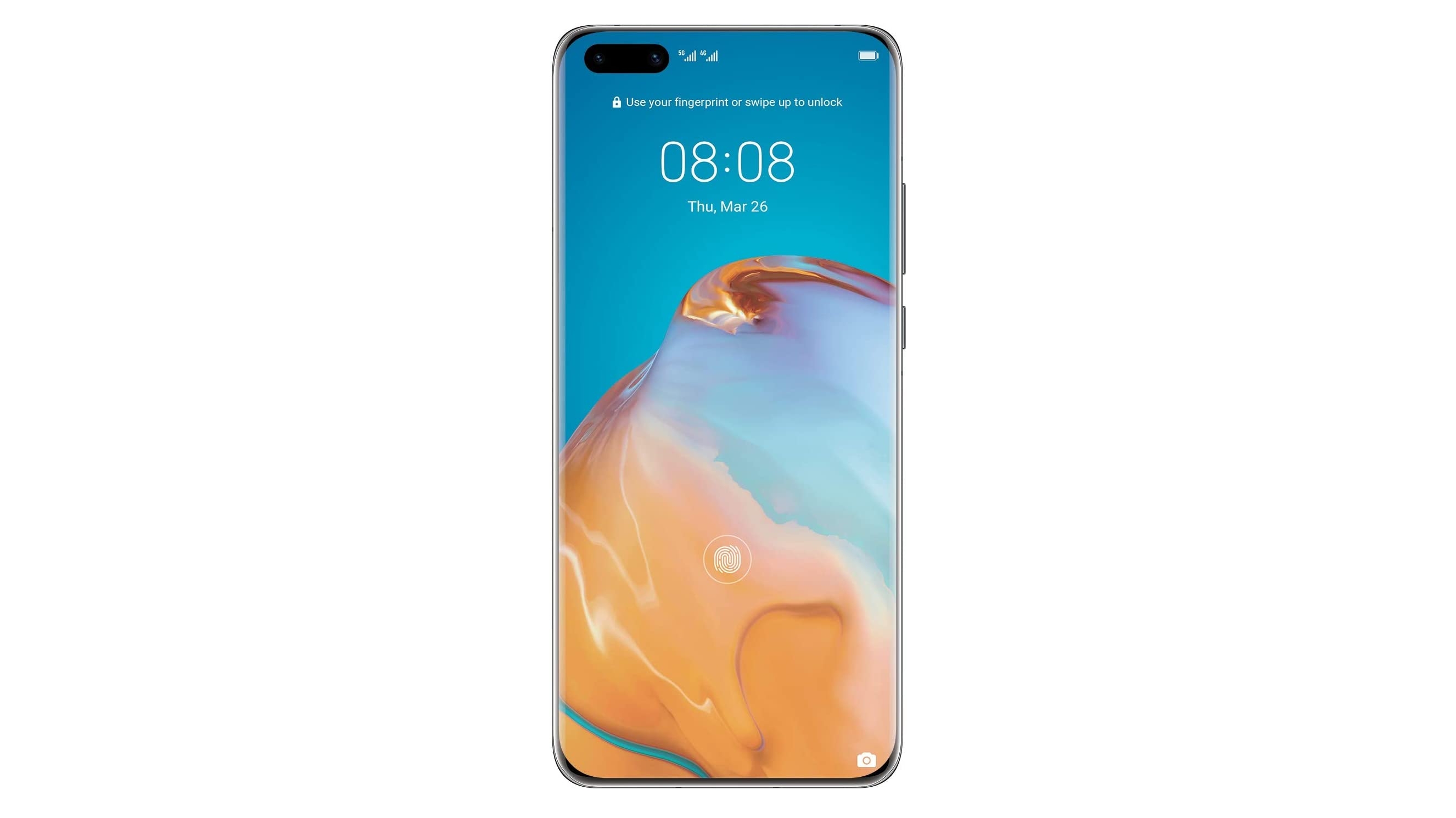
4. Huawei P40 Pro
The P40 Pro has superb cameras, but it’s hampered by its software
Release date: March 2020 | Weight: 209g | Dimensions: 158.2 x 72.6 x 9mm | OS: Android 10 | Screen size: 6.58-inch | CPU: Kirin 990 | RAM: 8GB | Storage: 128/256/512GB | Battery: 4,200mAh | Rear camera: 50MP + 40MP + 12MP + ToF | Front camera: 32MP
The Huawei P40 Pro should be the best handset Huawei has ever made. After all, it’s an upgrade on the Huawei P30 Pro in most ways, with a superb quad-lens camera, phenomenal life from its 4,200mAh battery, and a stylish design, with curved glass on all four front edges.
You also get flagship power from the P40 Pro’s Kirin 990 chipset, plus a great screen with a high 90Hz refresh rate.
So why isn’t this Huawei’s best phone? Because like other recent Huawei handsets it lacks Google Mobile Services, meaning no Google apps (such as Maps) and more importantly no access to the Google Play Store. So you have to get your apps elsewhere, and the selection is more restrictive.
As such, the Huawei P40 Pro finds itself in the awkward position of being a lesser handset than its predecessor. But the hardware is great, so if you can live without Google on your phone then it’s still well worth considering.
Read more: Huawei P40 Pro review
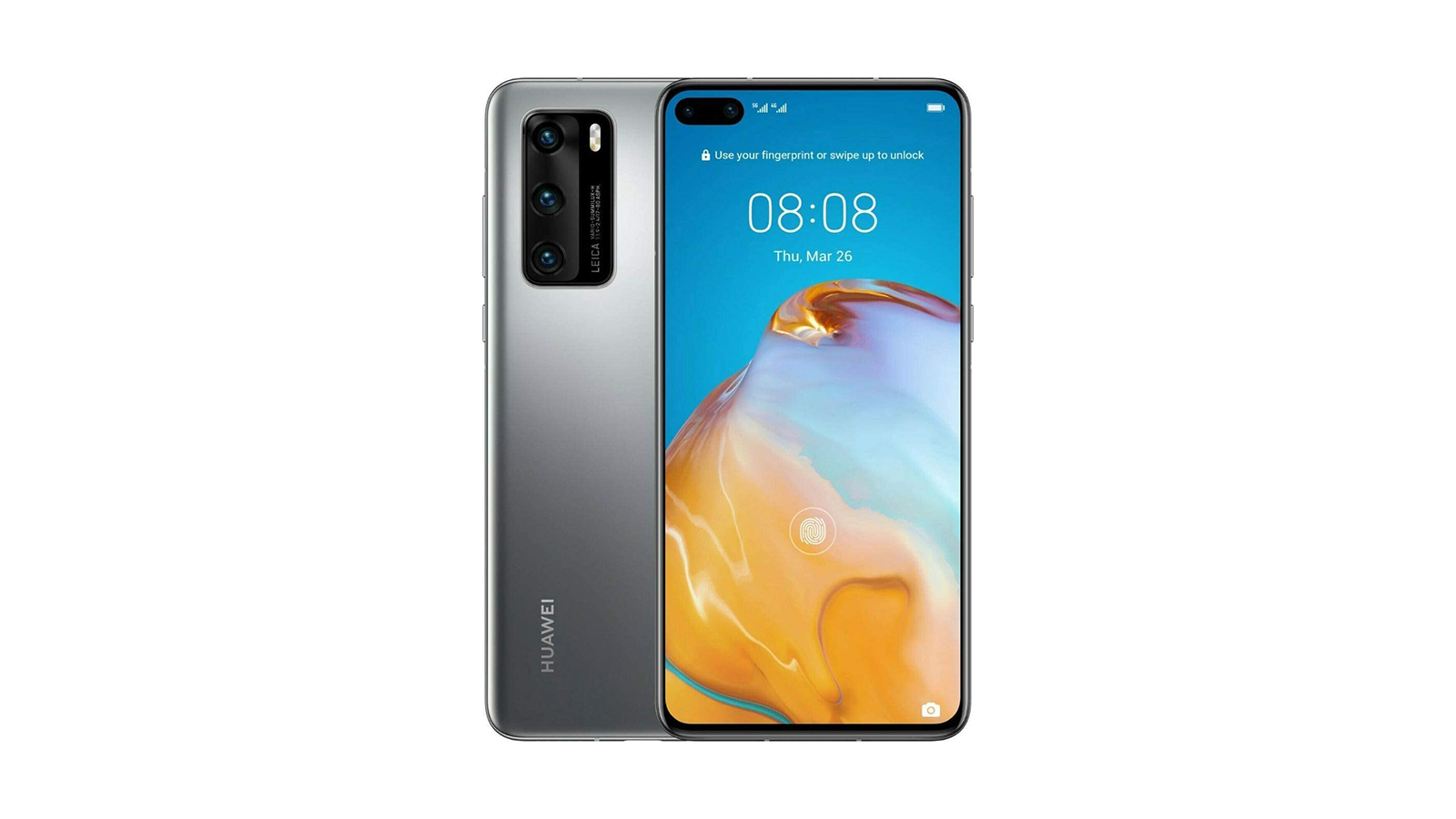
5. Huawei P40
Well priced but hampered
Release date: June 2020 | Weight: 175g | Dimensions: 148.9 x 71.1 x 8.5 mm | OS: Android 10 | Screen size: 6.1-inch | CPU: Kirin 990 5G | RAM: 6/8GB | Storage: 128/256GB | Battery: 3,800mAh | Rear camera: 50MP + 8MP + 8MP | Front camera: 32MP
If you want in on the hardware design and solid cameras of the P40 series but are still cautious that they don't support Google Mobile services, you might want to go for this regular P40 considering it's cheaper than the Pro and Pro Plus.
There's no wireless charging or high refresh rate display but the design is among the best in the market and the triple camera set up takes stunning photos and videos. The Kirin 990 chipset is 5G ready, and the battery life is incredible.
But with no access to the Google Play Store or Google services it remains limited for the Western market.
Read more: Huawei P40 review
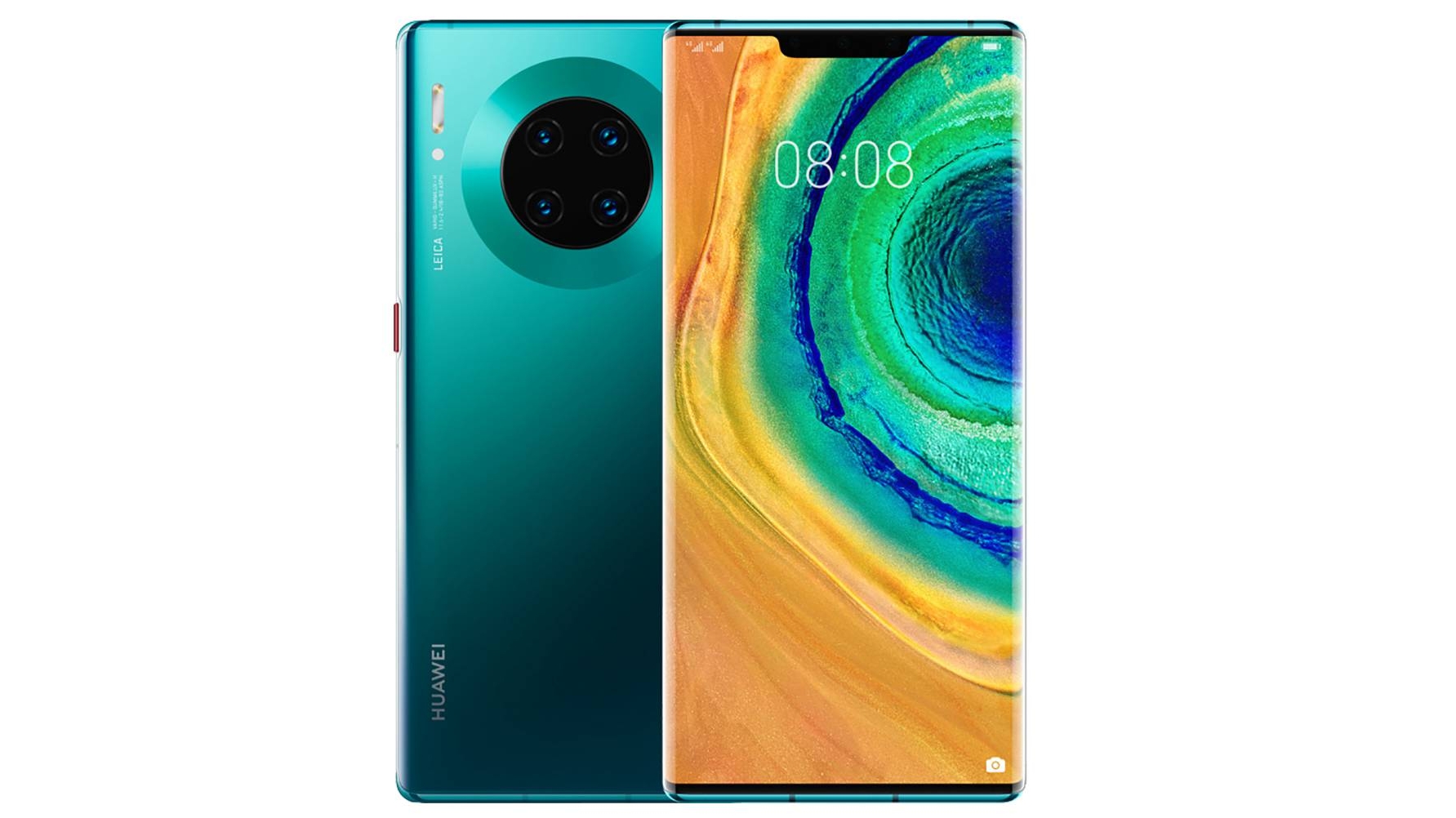
6. Huawei Mate 30 Pro
When excellent isn’t enough
Release date: September 2019 | Weight: 198g | Dimensions: 158.1 x 73.1 x 8.8mm | OS: Android 10 | Screen size: 6.53-inch | CPU: Kirin 990 | RAM: 8GB | Storage: 128/256GB | Battery: 4,500mAh | Rear camera: 40MP + 40MP + 8MP + ToF | Front camera: 32MP
The Huawei Mate 30 Pro was one of the earliest casualties of the Huawei ban – so there are no Google apps on this phone, and there’s no access to the Google Play Store.
If you can get past the restricted software though, there’s some very good hardware here, including a stunning edge-to-edge waterfall display, great battery life from its 4,500mAh battery, and an excellent quad-lens camera, which outperforms most rivals in low light situations.
The Huawei Mate 30 Pro also has the same chipset as the Huawei P40 Pro, so performance is similar, and it packs most other flagship features, such as water resistance and wireless charging.
Read more: Huawei Mate 30 Pro review
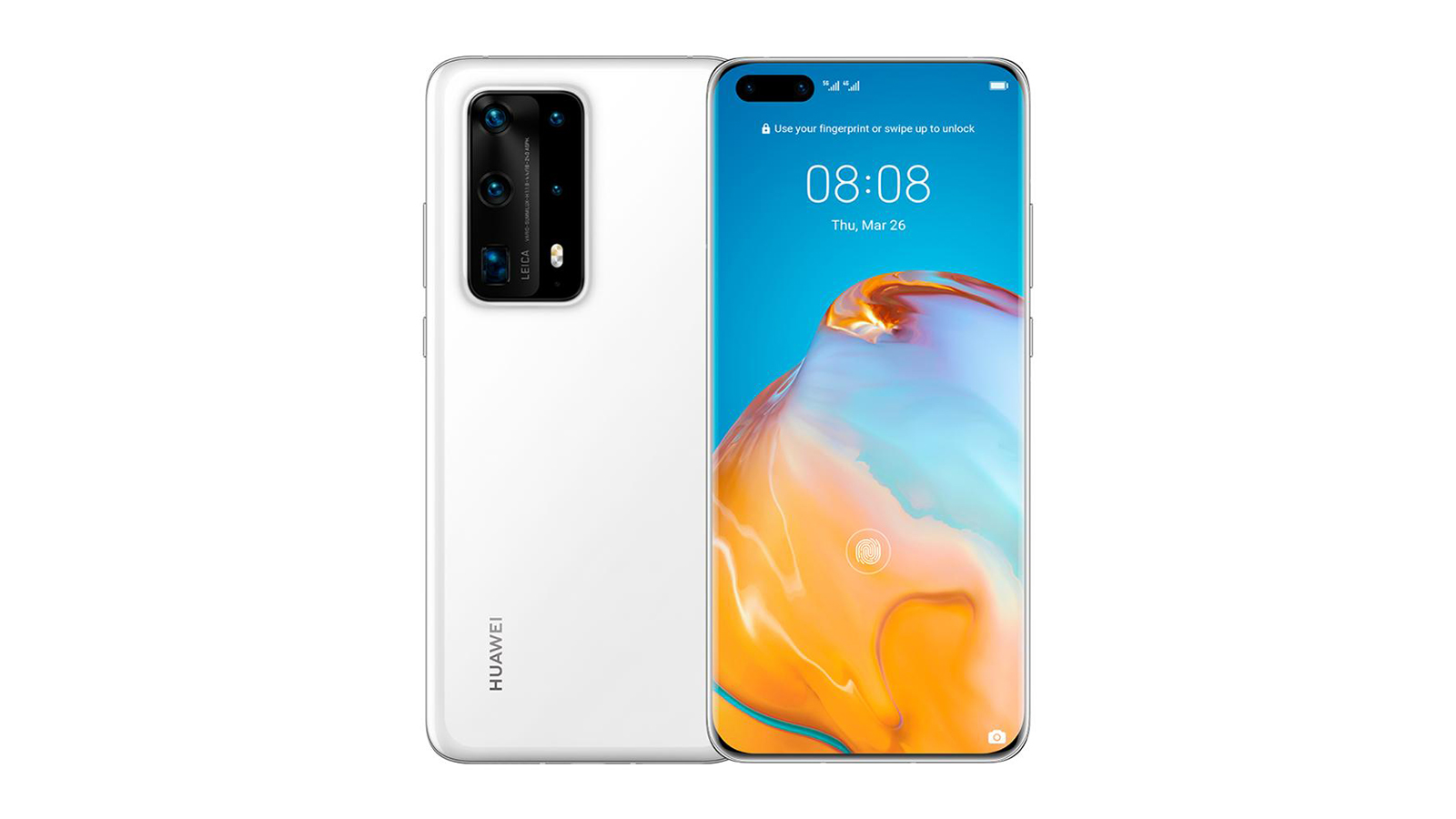
7. Huawei P40 Pro Plus
The best smartphone camera system
Release date: June 2020 | Weight: 226g | Dimensions: 158.2 x 72.6 x 9mm | OS: Android 10 | Screen size: 6.58-inch | CPU: Kirin 990 5G | RAM: 8GB | Storage: 128/256/512GB | Battery: 4,200mAh | Rear camera: 50MP + 40MP + 8MP + 8MP + ToF | Front camera: 32MP
This phone is every bit as good as the P40 Pro and then goes the extra mile with even better cameras. We think it has the best camera system on any smartphone in 2020, with some breathtaking capabilities that put it ahead of many standalone compact cameras on the market.
It can shoot optically stabilised stills at 10x zoom and is a photographer’s dream. But without access to the Google Play Store and Google apps and services, it’s considerably hampered for daily use for all but the most tech-savvy or patient.
It means the phone won’t play nice with your Gmail account, won’t work with third party apps like Uber that use Google Maps and won’t link up to any Wear OS wearables. Even though it packs the best cameras around, 5G and great battery life, the P40 Pro Plus remains a tough sell, particularly at the asking price.
Read more: Huawei P40 Pro Plus review
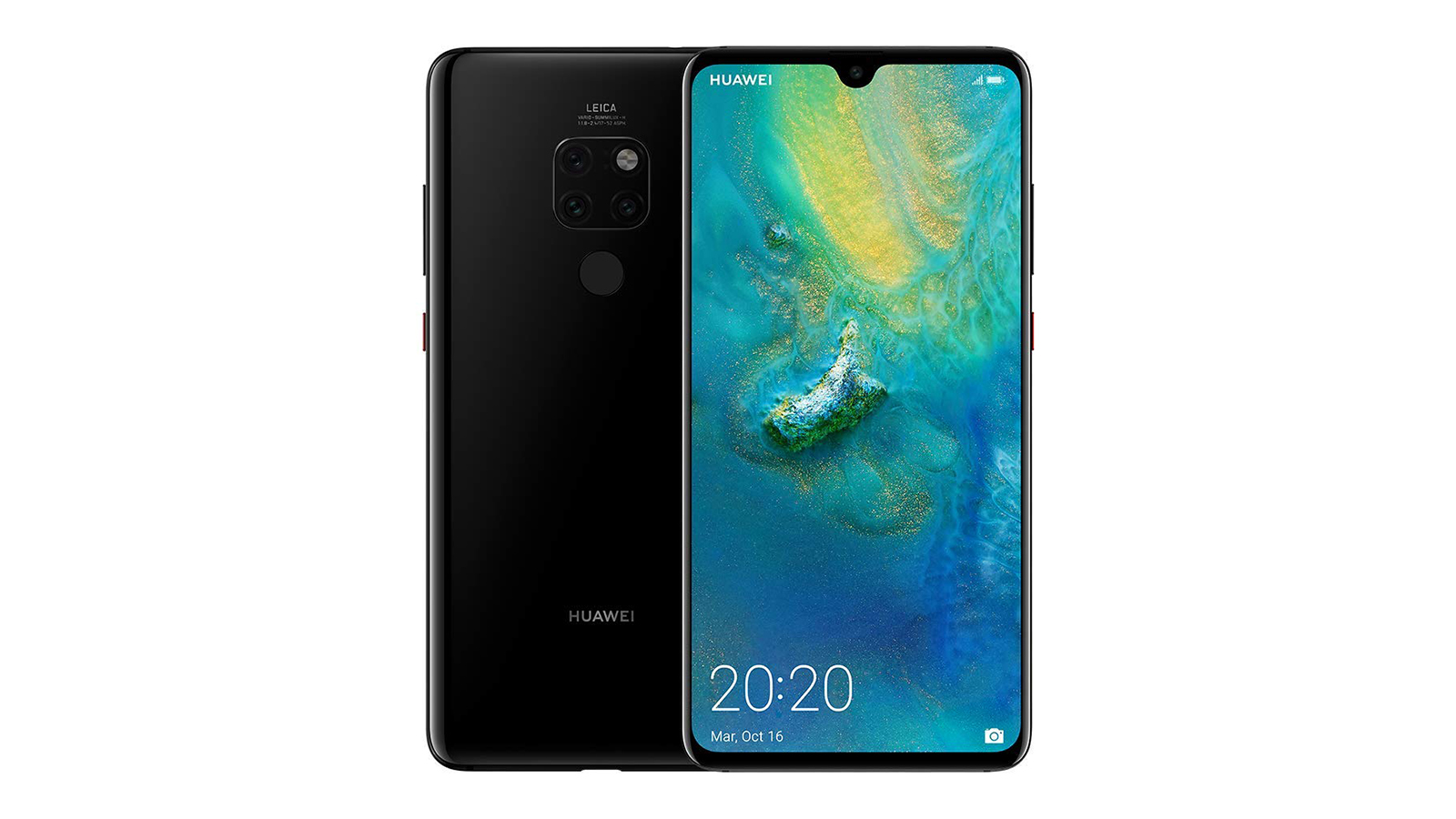
8. Huawei Mate 20
Could be your best Mate
Weight: 188g | Dimensions: 158.2 x 77.2 x 8.3mm | OS: Android 9 | Screen size: 6.53-inch | Resolution: 1080 x 2244 | CPU: Kirin 980 | RAM: 4/6GB | Storage: 128GB | Battery: 4,000mAh | Rear camera: 12MP+16MP+8MP | Front camera: 24MP
The standard Huawei Mate 20 may be worse than the Huawei Mate 20 Pro, but it’s still a strong phone in its own right and it’s cheaper too.
Other than the lower – though still high – price, highlights include a 4,000mAh battery which in our tests delivered excellent life, and top-end power, thanks to the use of an octa-core Kirin 980 chipset and up to 6GB of RAM.
The Huawei Mate 20 also has a triple-lens camera on the back. This isn’t the same selection of lenses as its Pro-level sibling, but still makes for a versatile setup.
And in some ways the Mate 20 actually has the Mate 20 Pro beat, as its 6.53-inch screen is larger, and it has a headphone port, which the fancier phone doesn’t.
Read more: Huawei Mate 20 review
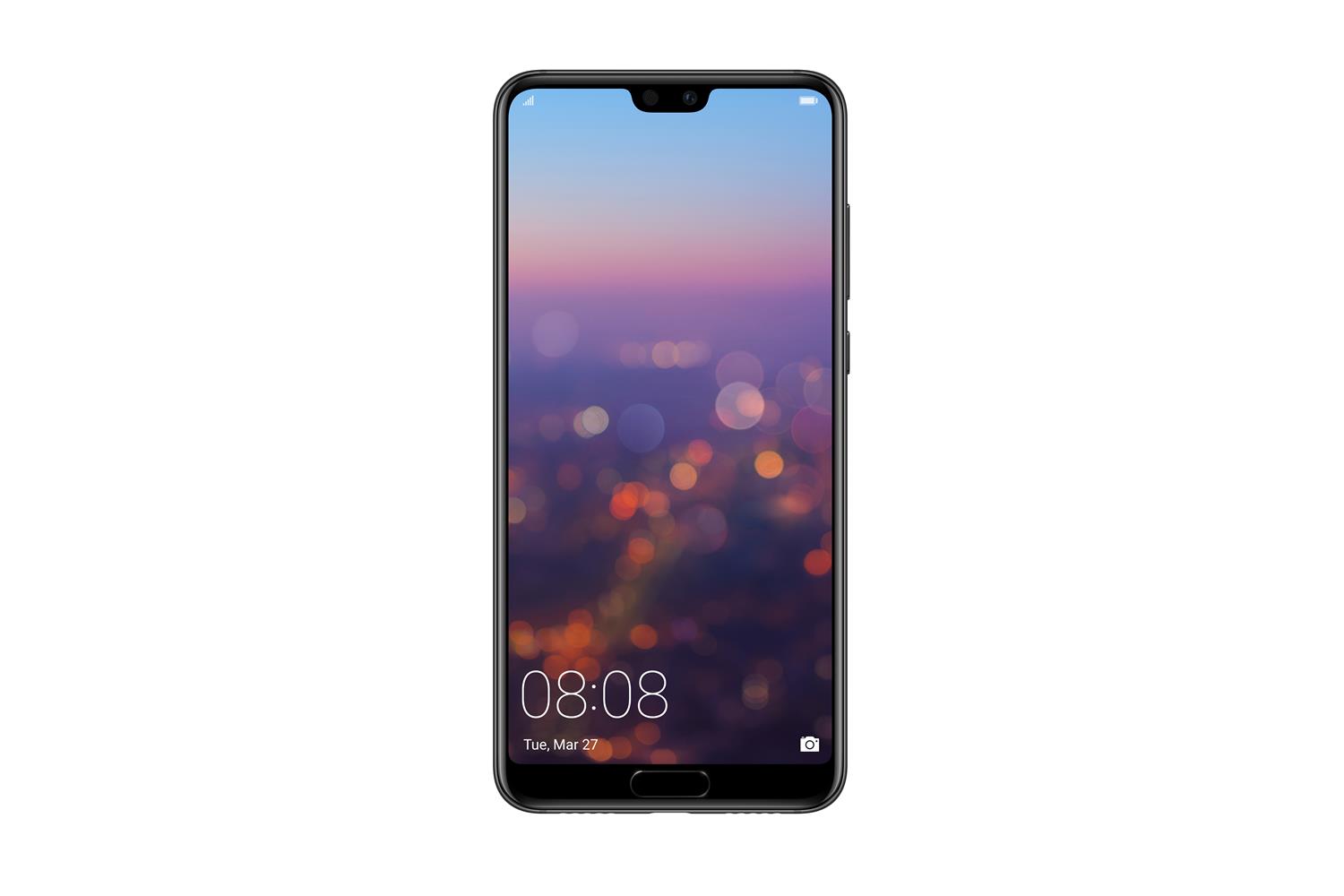
9. Huawei P20 Pro
A real pro for photography
Weight: 180g | Dimensions: 155 x 73.9 x 7.8mm | OS: Android 9 | Screen size: 6.1-inch | Resolution: 1080 x 2240 | CPU: Kirin 970 | RAM: 6GB | Storage: 128GB | Battery: 4,000mAh | Rear camera: 40MP+20MP+8MP | Front camera: 24MP
The Huawei P20 Pro may not be Huawei's latest flagship any more, but it still has a lot going for it, with the highlight being its exceedingly impressive and versatile triple-lens rear camera.
That camera allows for 3x optical zoom and proves surprisingly adept at night shots, which is usually a setting that phone cameras really struggle with.
Other highlights of the Huawei P20 Pro include a big, long-lasting battery, and an even bigger AMOLED screen that delivers vivid colors on a large scale.
The Huawei P20 Pro also has a striking design, with a metal frame and a glass back, that optionally comes in a gradient color scheme that sees the colors shift from purple at the top to a turquoise shade at the bottom.
Like any good flagship the Huawei P20 Pro also has facial recognition, a fingerprint scanner and lots of RAM.
There’s no wireless charging and the chipset isn’t quite a match for some flagships, but it’s not far off, and as a complete package the Huawei P20 Pro can compete with any other handset, as its strong ranking in our best smartphones list attests.
Read more: Huawei P20 Pro review
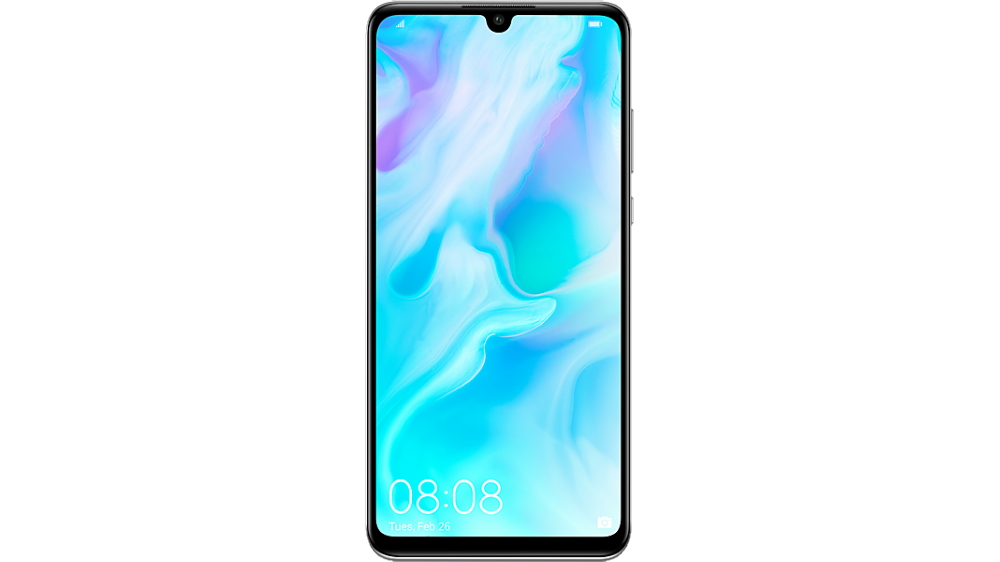
10. Huawei P30 Lite
Huawei's mid-ranger is a notch or two below its brothers
Weight: 159g | Dimensions: 152.9 x 72.7 x 7.4mm | OS: Android 9 | Screen size: 6.15-inch | Resolution: 1080 x 2312 | CPU: Kirin 710 | RAM: 4/6GB | Storage: 128GB | Battery: 3,340mAh | Rear camera: 48MP + 8MP + 2MP | Front camera: 24MP
Despite having P30 in its name, the Huawei P30 Lite is no match for the rest of the range and nor is it a flagship. Instead it’s a mid-ranger, but it’s quite a good one.
For one thing, it looks good, with a glass-backed design that’s similar to the Huawei P30, down to the notch on the front.
It also has a similarly good screen to its pricier sibling, as it has a 6.15-inch 1080 x 2312 display with a pixel density of around 415 pixels per inch.
Plus it has face unlock, a triple-lens rear camera, an octa-core chipset and 4/6GB of RAM. However, this is a mid-range chipset and not as good as the ones some similarly priced alternatives have.
Overall, it's a solid mid-range handset, but attempting to say it belongs in the same family as the other two P30 devices feels like a little bit of a stretch.
Read more: Huawei P30 Lite review
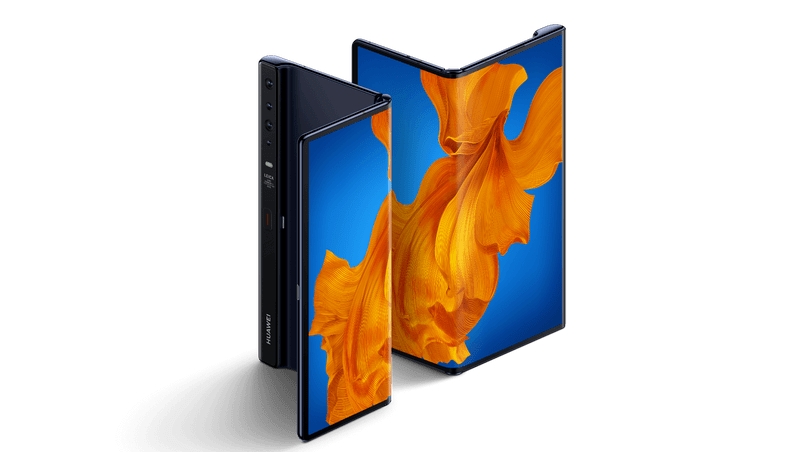
11. Huawei Mate Xs
The foldable phone done right
Release date: March 2020 | Weight: 300g | Dimensions: 161.3 x 78.5 x 11mm (folded) / 161.3 x 146.2 x 5.4mm (unfolded) | OS: Android 10 | Screen size: 6.6-inch (folded) / 8.0-inch (unfolded) | CPU: Kirin 990 | RAM: 8GB | Storage: 512GB | Battery: 4,500mAh | Rear camera: 40MP + 16MP + 8MP + ToF | Front camera: N/A
The Huawei Mate Xs has arguably the best foldable phone design we’ve seen so far, achieved by placing the foldable screen on the outside so it’s always visible.
This allows the Huawei Mate Xs to work effectively as both a 6.6-inch smartphone and an 8.0-inch tablet, and it’s got the specs to carry out both roles, with a high-end Kirin 990 chipset, 8GB of RAM, a 4,500mAh battery, and a great quad-lens camera.
Other than its inevitably high price the main thing that holds the Huawei Mate Xs back is the same issue most recent Huawei phones have – the lack of Google Mobile Services. So while the hardware’s great, the software is at a disadvantage.
Read more: Huawei Mate Xs review
- Load your phone up with the best Android apps
from TechRadar - All the latest technology news https://ift.tt/2EVdBUT
via IFTTT









COMMENTS